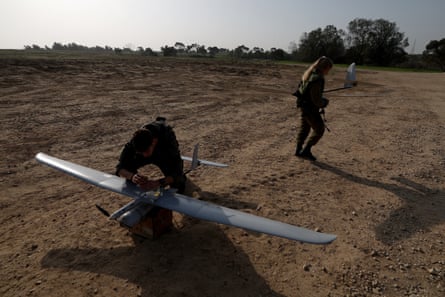Microsoft Deepens Ties with Israeli Military During Gaza Conflict
Leaked documents have revealed that Microsoft significantly expanded its technological support to the Israeli military during the recent Gaza war, providing extensive cloud computing and artificial intelligence services. The files, obtained through an investigation by the Guardian in collaboration with +972 Magazine and Local Call, shed light on how Israel integrated Microsoft’s technology into its war effort.
The Israeli military’s reliance on Microsoft’s Azure cloud technology and AI systems increased substantially during the most intense phase of its Gaza bombardment. Multiple Israeli defense sources confirmed that the IDF became increasingly dependent on major US tech companies like Microsoft, Amazon, and Google to store and analyze large volumes of data and intelligence information.

The leaked documents, including commercial records from Israel’s defense ministry and files from Microsoft’s Israeli subsidiary, show that Microsoft’s Azure cloud computing platform was used across various IDF units, including air, ground, and naval forces, as well as its intelligence directorate. Microsoft staff worked closely with the IDF’s elite surveillance division, Unit 8200, on sensitive projects.
Key Findings from Leaked Documents
- Microsoft provided thousands of hours of technical support to IDF units between October 2023 and June 2024, worth approximately $10 million.
- The IDF’s monthly consumption of Microsoft Azure’s cloud storage increased by 60% during the first six months of the war compared to the previous four months.
- The military’s use of Azure’s machine learning tools surged to 64 times higher by March 2024 compared to September 2023.
- Microsoft facilitated access to OpenAI’s GPT-4 model through its Azure platform, with consumption peaking at a quarter of the military’s total machine learning tool usage.

The investigation highlights the growing involvement of private tech companies in modern warfare and the blurring of lines between civilian and military digital infrastructure. This development has sparked controversy and protests among tech workers in the US who are concerned about the implications of their work on conflicts like the Gaza war.
The IDF’s commander of central computing unit, Mamram, Col Racheli Dembinsky, described the shift to cloud services as providing ‘very significant operational effectiveness’ in Gaza. The use of commercial cloud companies was crucial in handling the IDF’s sudden demand for computing power during the war.
Microsoft and the IDF declined to comment on the findings. The disclosures have raised questions about the role of major tech companies in supporting military operations and the ethical implications of such involvement.


